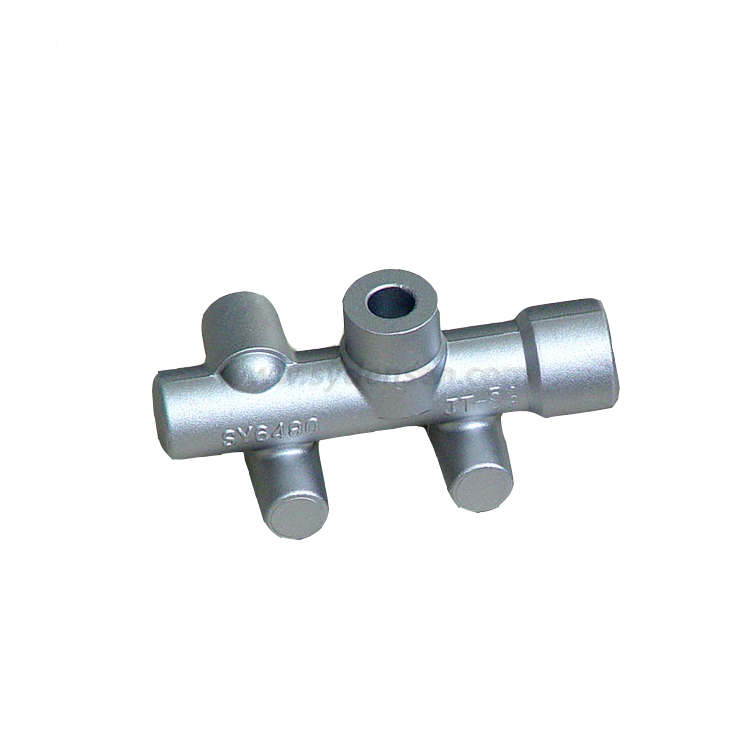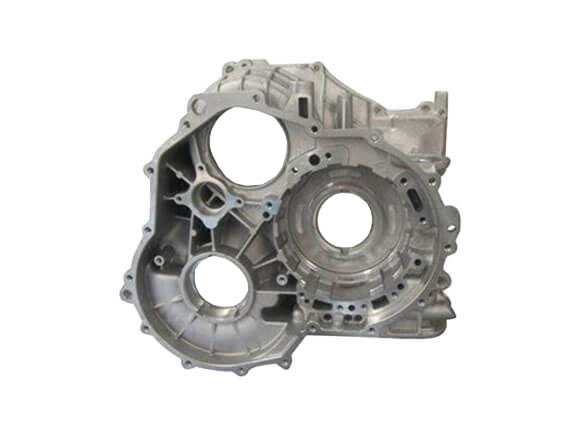The Effect of Cutting-edge Shop Providers on Lasting Production Practices
Innovative factory solutions play an important duty ahead of time lasting production techniques. By incorporating reusing technologies and energy-efficient processes, these solutions substantially minimize environmental impact. Foundries can reclaim important materials, thereby lowering reliance on virgin sources. As automation and lean production principles acquire traction, manufacturing efficiency is maximized. Nonetheless, the complete level of these improvements and their ramifications for the future of producing remain to be checked out.
The Duty of Advanced Recycling Technologies in Foundries
Advanced recycling innovations are transforming the landscape of factories by improving product recovery and decreasing waste. These cutting-edge processes permit foundries to reclaim useful metals and materials from scrap, minimizing reliance on virgin sources. By integrating innovative sorting, shredding, and melting strategies, foundries can effectively remove usable products from disposed of items, thereby promoting a circular economic situation.
These innovations support the manufacturing of top quality alloys and parts, making sure that recycled products satisfy rigid sector criteria. Because of this, factories are not only improving their product efficiency but also lowering the ecological impact connected with conventional production techniques
This change towards advanced recycling not only bolsters economic feasibility for foundries yet additionally lines up with international sustainability objectives. Inevitably, the consolidation of these innovations stands for a significant step forward in the quest for lasting production methods within the foundry market.
Power Performance: Minimizing Intake in Production Processes
Power efficiency in making processes is essential for sustainable procedures. Techniques such as process optimization strategies, renewable resource assimilation, and waste warmth healing play important duties in lessening power usage. By concentrating on these areas, suppliers can considerably minimize their ecological influence while improving performance.
Process Optimization Techniques
A substantial number of manufacturing centers are significantly taking on procedure optimization techniques to boost energy effectiveness and reduce usage. These techniques entail refining and evaluating production process, recognizing bottlenecks, and implementing automation to streamline procedures. By leveraging information analytics, manufacturers can keep an eye on energy usage in real-time, allowing positive changes to minimize waste. Strategies such as Lean Production and Six Sigma concentrate on optimizing and eliminating ineffectiveness source allotment. In addition, advanced modern technologies like Net of Things (IoT) sensors supply understandings into equipment performance, promoting anticipating upkeep that stops energy loss. On the whole, these procedure optimization approaches not only add to decreased energy intake however additionally promote a society of constant enhancement within making settings, lining up operational methods with sustainability objectives.
Renewable Resource Integration
Many manufacturing facilities are progressively integrating renewable resource resources to improve overall energy effectiveness and minimize dependence on typical power grids. This change consists of the fostering of solar, wind, and biomass power, which can significantly decrease and decrease functional costs carbon impacts. By making use of these sustainable power sources, suppliers not only lessen their ecological effect however additionally enhance energy strength. On top of that, integrating renewable resource systems often involves advanced modern technologies such as power storage and smart grid options, which maximize energy use and help with real-time monitoring. This combination sustains makers in accomplishing governing conformity and conference sustainability goals while cultivating technology in production processes. Inevitably, sustainable power combination represents a pivotal shift towards even more lasting manufacturing techniques and long-term feasibility.
Waste Warmth Recuperation
Incorporating renewable resource resources establishes the stage for additional developments in power efficiency, particularly through the execution of waste warm recuperation systems. These systems record excess thermal power produced during making procedures, which would certainly otherwise be lost to the setting. By repurposing this heat, foundries can substantially reduce their power intake, lower operational expenses, and lessen their carbon impact. The recovered warmth can be made use of for numerous applications, such as heating, power generation, or pre-heating basic materials. As a result, waste warm recuperation not just boosts power efficiency but additionally adds to a sustainable production version. Innovative shop services that prioritize this innovation are leading the way for an eco liable commercial landscape, straightening productivity with ecological stewardship.
Making Use Of Eco-Friendly Products in Foundry Workflow
As the demand for lasting manufacturing techniques grows, factories are increasingly turning to environmentally friendly products to improve their operations. By including sustainable choices, such as bio-based binders and recycled steels, factories can significantly minimize their ecological footprint. These products often need much less energy for handling and can lessen harmful discharges during production.
The fostering of green products not only lines up with regulatory standards yet also satisfies consumer preferences for greener products. Factories are exploring cutting-edge options, such as using natural additives that enhance mold and mildew quality while remaining safe.
The change to lasting materials cultivates a round economic situation by promoting resource reuse and minimizing waste. Furthermore, this change can enhance the total efficiency of foundry procedures, as environmentally friendly materials usually display remarkable homes, leading to boosted product efficiency - aluminum casting. Eventually, the utilization of eco-friendly products represents an essential action towards sustainable production in the foundry sector

Developments in Waste Monitoring and Decrease Techniques
The shift towards eco-friendly materials in factory operations leads the way for improvements in waste monitoring and decrease techniques. Innovative factory Get More Info solutions are significantly taking on strategies that decrease waste generation and advertise recycling. Techniques such as closed-loop systems permit for the reuse of materials, greatly minimizing the quantity of waste created throughout manufacturing processes. Additionally, improvements in filtering and splitting up modern technologies allow the reliable recuperation of important byproducts, which can be rehabilitated right into the manufacturing cycle.
Moreover, the application of real-time monitoring systems offers data-driven understandings into waste generation patterns, assisting in notified decision-making to maximize resource usage. Factories are likewise discovering biowaste options, converting organic waste right into power or usable materials, even more advertising sustainability. These innovations not just contribute to a circular economy yet additionally enhance the general environmental performance of shop procedures, emphasizing the sector's dedication to minimizing its ecological footprint.
The Influence of Automation on Sustainable Production
While numerous industries go for sustainability, automation arises as an important variable in enhancing lasting production practices within factories. By you can try here integrating automated systems, factories can attain greater effectiveness, decrease waste, and reduced power intake. Automated procedures permit accurate control over production parameters, lessening defects and remodel, which consequently conserves sources.
In addition, automation promotes the tracking of ecological impacts, enabling real-time changes that align with sustainability objectives. Aluminum Foundry. Advanced robotics and expert system can maximize material usage, resulting in substantial reductions in scrap and exhausts
Furthermore, automated innovations promote more secure workplace by taking care of dangerous tasks, thus improving worker well-being while making certain conformity with ecological guidelines. In general, the fostering of automation within foundries not only simplifies procedures but also plays a pivotal duty in progressing lasting production techniques, adding to an extra liable commercial landscape.
Instance Researches: Effective Execution of Sustainable Factory Practices
Effective application of sustainable techniques in shops can be shown with numerous study that highlight quantifiable end results and ingenious approaches. One remarkable example is a mid-sized shop that embraced a closed-loop water reusing system, lowering water intake by 40% and decreasing wastewater generation. In my link addition, this center changed to utilizing green mold materials, which not only enhanced item high quality however also enhanced employee safety.
An additional significant situation included a big shop incorporating renewable resource resources, such as photovoltaic panels, which balance out 30% of its energy requires. This initiative not just reduced functional expenses however also contributed to a substantial decrease in carbon emissions.
A factory that applied lean production methods reported a 25% rise in efficiency, leading to less material waste and enhanced production procedures. These instances jointly underscore the substantial advantages and sustainability innovations attainable through cutting-edge factory practices.
Regularly Asked Questions
Exactly How Do Innovative Shop Providers Contribute to Overall Sustainability Objectives?
Cutting-edge factory solutions boost overall sustainability objectives by optimizing resource use, reducing waste, and boosting power effectiveness. These advancements add to decrease carbon footprints and promote environmentally liable methods within the production sector, sustaining broader sustainability initiatives.
What Are the Economic Conveniences of Adopting Lasting Shop Practices?
Taking on sustainable foundry practices can lower functional expenses, improve resource performance, and improve competitiveness. Additionally, these techniques can attract eco-conscious customers and capitalists, ultimately bring about increased productivity and lasting economic viability for services.
Just How Can Little Factories Execute Sustainable Technologies Successfully?
Small foundries can apply lasting innovations successfully by embracing energy-efficient technologies, optimizing resource use, training personnel on lasting practices, teaming up with distributors for environment-friendly materials, and taking part in constant enhancement procedures to lower waste and emissions.
What Qualifications Exist for Lasting Factory Workflow?

Exactly How Do Consumer Preferences Influence Sustainable Manufacturing in Foundries?
Consumer preferences significantly influence sustainable manufacturing in factories by driving demand for environment-friendly items. As customers prioritize sustainability, foundries adapt their methods, including greener technologies and materials to fulfill market assumptions and enhance their competitive advantage.
By repurposing this heat, factories can significantly lower their power usage, reduced functional costs, and minimize their carbon impact. Factories are likewise exploring biowaste remedies, transforming natural waste right into power or usable materials, even more promoting sustainability. By integrating automated systems, factories can accomplish greater effectiveness, minimize waste, and reduced energy consumption. One more considerable instance entailed a huge factory integrating renewable energy sources, such as solar panels, which counter 30% of its power requires. Innovative shop solutions boost overall sustainability goals by maximizing resource use, reducing waste, and improving energy performance.